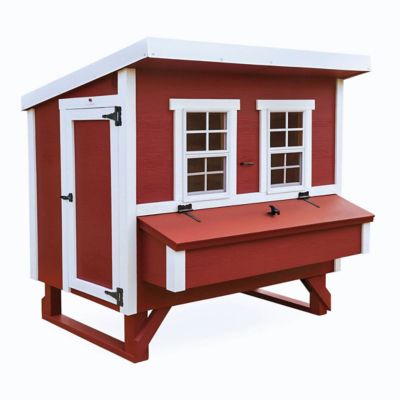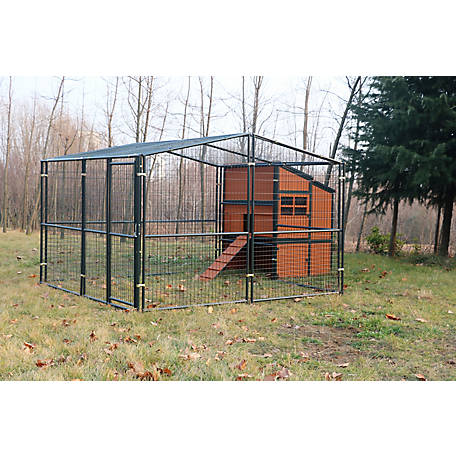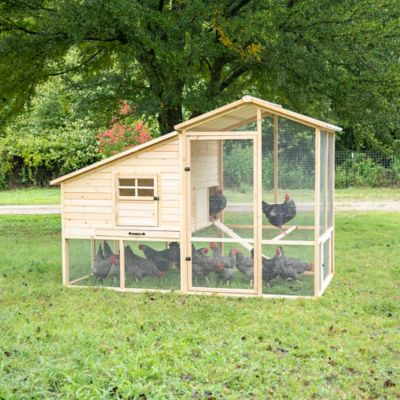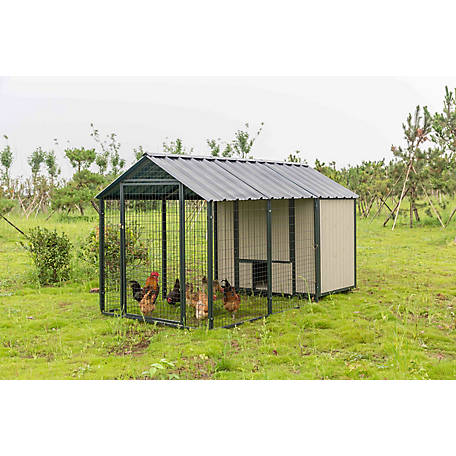ecoFLEX New Age Pet Jumbo Fontana Chicken Barn, Maple Chicken Coop, ECHK503-B
-
( 2 Reviews )Rated 5.00 out of 5 based on 2 customer ratings02
10-year limited manufacturer warranty. Made with ECOFLEX, a durable & long-lasting wood plastic composite. Non-toxic and eco-conscious. Easy assembly, no tools required. 3 compartment nesting box.
-
OverEZ Large Chicken Coop, 46OEZCKCP at Tractor Supply Co.
Rated 4.80 out of 520OverEZ Large Chicken Coop, 46OEZCKCP at Tractor Supply Co.
Rated 4.80 out of 520 -
Producer’s Pride Defender Chicken Coop 2020, 1168239N – Tractor Supply
Rated 4.00 out of 507Producer’s Pride Defender Chicken Coop 2020, 1168239N – Tractor Supply
Rated 4.00 out of 507 -
Precision Xl Superior Construction Annex Coop, 37077D
Rated 4.60 out of 515Precision Xl Superior Construction Annex Coop, 37077D
Rated 4.60 out of 515 -
Producer’s Pride Extra Large Sentinel Chicken Coop, MFC-LS
Rated 4.25 out of 504Producer’s Pride Extra Large Sentinel Chicken Coop, MFC-LS
Rated 4.25 out of 504
New Age Pet Jumbo Fontana Chicken Barn
- 10-year limited manufacturer warranty
- Made with ECOFLEX, a durable & long-lasting wood plastic composite
- Non-toxic and eco-conscious
- Easy assembly, no tools required
- 3 compartment nesting box
The New Age Pet Jumbo Fontana Chicken Barns are backed by a 10 year limited manufacturer warranty. The ECOFLEX material is non-toxic, eco-friendly & impervious to moisture & odor. This coop features a 3 compartment, rear mounted nesting box with hinged lid for easy egg collecting, two roosting bars located in the main body of the coop and a door that acts as a ramp when opened. Available in Maple and Red w/ Maple trim. New Age Pet products are easy to assemble, easy to clean & easy to LOVE!
Additional information
| Product Weight | 109.7 lb. |
|---|---|
| Product Length | 46.3 in. |
| Door Height | 21.2 in. |
| Door Width | 12.2 in. |
| Product Height | 40.1 in. |
| Product Width | 54.1 in. |






by Atlanta
Waterproof, safe, easy assembly, great appearance. I give my 18 Bantams the choice of 2 coops, but all of them cramp in this one.
Only con: you have to disassemble the roof to clean it out. They should come up with a different system. But that’s not enough to deduct a rating star.
by Manitoak
Easy assembly in about 2 hours. Well made. Chickens love it!